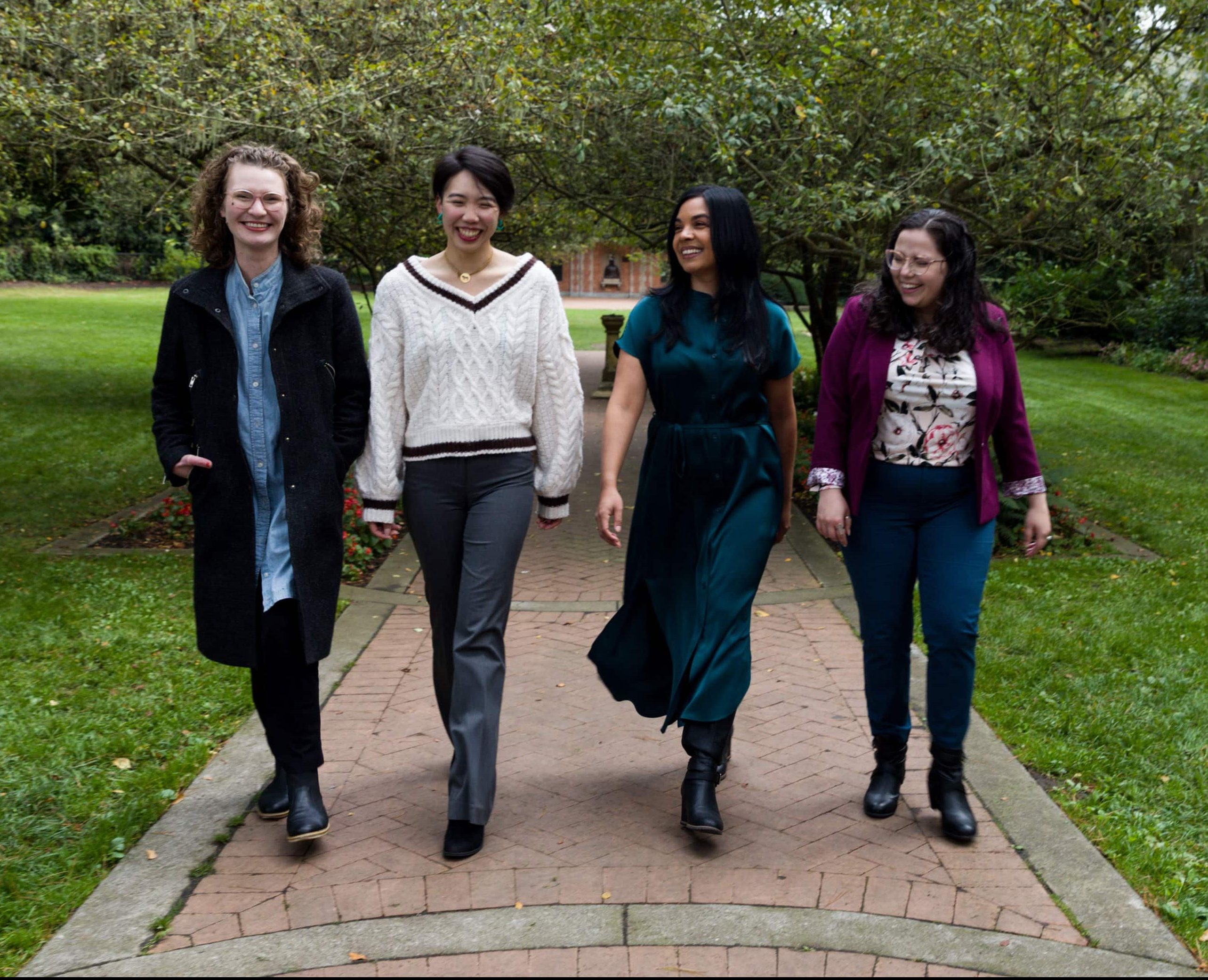Group Therapy | Relationship Skills | All About Therapy
What comes to mind when you think of group therapy?
Maybe you picture a scene from a TV show or movie that shows people sitting in a circle, or a 12 step group meeting. Maybe you worry about having to speak in front of others. Or maybe you’re not even sure what the point of a therapy group is, when individual therapy is available.
Our cultural understanding of group therapy is pretty limited to scenes we see in the media, and those depictions don’t always show everything that group therapy can offer. Group therapy isn’t only equally as effective as individual therapy in many situations, it also has a variety of benefits in and of itself.
First, let’s establish the basics. What is group therapy?
A therapy group is unique in that it is led by a trained, licensed mental health professional. Group therapy is different from peer support groups, which aren’t led by psychotherapists.
There are different kinds of group therapy. Some groups focus on psychoeducation, or providing support and resources on specific topics. Other groups focus more on processing emotions around a certain topic. Some groups meet in person, while others meet online. Both in-person and virtual therapy groups can be effective, the format usually just depends on who is in the group and everyone’s availability.
In general, the groups are kept small enough to ensure that everyone will have a chance to participate meaningfully and gain the most out of the group.
What to expect in a therapy group:

What happens in a therapy group depends on the topic of the group, but there is a general format that groups tend to follow.
There is usually a pre-screening process when forming the therapy group to ensure that it is clinically appropriate for all participants, and to establish the expectations about confidentiality.
When a group is led by a therapist, the therapist is in charge of setting and maintaining the boundaries of the group. The therapist is also responsible for keeping the group on schedule and making sure that members are feeling supported. Support is built-in along the way during group therapy. The therapist who is facilitating the therapy group will help you get out of your comfort zone in a way that is at your own pace and within your own boundaries.
Many groups are dedicated to a certain topic, and they may also have a set number of weeks in which to cover the materials. Group therapy sessions usually begin with a welcome to the members, as well as offering everyone a chance to speak. Sometimes groups might have sessions devoted to learning more from the therapist about the topic at hand, and other sessions might be devoted to discussion.
There are a lot of misconceptions out there about group therapy. Here are 3 of the common myths we hear:
Myth: Group therapy is a less effective alternative to individual therapy
Reality: Research shows groups and individual therapy are equally effective for a variety of concerns. They can be especially effective for people who are marginalized or historically underrepresented. It’s powerfully healing to connect with others who understand your experience.

Myth: Group therapy is a privacy nightmare. People will gossip about my personal business.
Reality: All group members are screened by the therapist one-on-one ahead of time. Everyone who participates makes a mutual commitment to protect each other’s privacy as an absolute prerequisite to participate. In addition, therapists are ethically bound to maintain confidentiality.
Myth: A therapy group will make me feel pressured to share all my deepest secrets
Reality: Groups are a good place to practice sharing and boundary setting. You get to choose how to participate as you build trust and gauge your comfort level.
Now that we’ve debunked some myths about group therapy, let’s talk about the benefits! Here are 5 reasons to try group therapy:
Gain insight from folks with similar experiences
Group therapy can help you gain insight from people who have dealt with similar situations and can help to remind you that you’re not alone. Hearing other people talk about going through something that you’ve gone through can help lessen the stigma around your experience.
The insight and support that members get from one another in a support group often helps people feel more hopeful about their situation. The benefits of group therapy can be especially powerful for minoritized people. According to the American Psychological Association, “Groups can be particularly fruitful for people of marginalized identities, offering support and solidarity from others with similar experiences.”
At Stella Nova, many of our former group clients have told us how much they’ve benefitted from getting peer validation and support. They share that hearing from someone who has dealt with a similar challenge is sometimes more impactful than hearing similar things from their therapist.

You can benefit just by listening
One of the best parts of a therapy group is the way everyone gets to learn from each other. If you’re nervous about speaking in front of others about a vulnerable topic, remember that you don’t have to plan to speak every time the opportunity arises.
It’s okay to have times during group therapy sessions where you focus on what the others are saying. That’s one of the many benefits of therapy in a group setting – if you’re not up for speaking, you can still learn from the others who are sharing.
Learn more about yourself
Learning more about yourself can help you find patterns in the way you relate to people and the way you make sense of your experiences. A therapy group offers a way to get support and feedback in the here-and-now, and allows you to try on new skills and new ways of relating in real time.
In a group therapy setting, you can get valuable, genuine feedback from other people—something that’s often in short supply in other types of social interactions. The feedback and practice you gain in group sessions can help make a big difference in lowering your distress level.
Practice new coping skills
Finding new ways to respond in moments of distress can make a big difference in how you feel. Group therapy offers a space to explore new coping skills that may feel more supportive to you.
A therapy group can be a great place to practice skills you’re learning in real time. Do you find it hard to speak up or set a boundary? Maybe you struggle with being vulnerable with other people, or use people-pleasing as a defense mechanism. In group therapy, you can actually practice approaching interpersonal situations differently, in a safe and supported space.
When you practice coping skills ahead of time, it’s easier to pull them out in moments of distress, and you can feel more confident using them in your day to day life.
It’s a great complement to individual therapy
You don’t have to choose between individual therapy and group therapy – you can absolutely find benefits from both. In fact, group therapy can be a good supplement to individual therapy. Sharing support with peers who have similar experiences can offer something different than what one-on-one therapy can provide, and groups can give you a chance to practice things you’re working on in individual therapy in a safer environment.
Remember, group therapy isn’t a lesser form of therapy – research has shown that its effectiveness equals that of individual therapy. It’s an effective, helpful form of therapy that can be a great fit for many people.
Are you interested in group therapy? Stella Nova is offering a 10 week BIPOC women’s support group for those on the journey towards building a different relationship with food and their body. If you’re interested in learning more about this group, or the group therapy process in general, contact us.
About the Author
Stella Nova is a mental health clinic specializing in therapy for women and nonbinary professionals. We are located in San Francisco, CA and work with clients all over the state of California. Our team of therapists and psychologists offer counseling for a variety of concerns, from anxiety and depression, to chronic pain, to disordered eating and more.
Stella Nova is a LGBTQ+ and BIPOC affirming practice, and we welcome people of all genders who are seeking a feminist healing space.

Find a California Therapist Near You
Are you looking for support in establishing boundaries in your relationships? Stella Nova offers online therapy for individuals and couples virtually throughout California, and in-person in San Francisco. Our team can provide therapy for relationships, depression, anxiety, stress, burnout, chronic pain, and more. We’re a BIPOC and LGBTQ+ owned and operated clinic that strives to provide an affirming, safe healing space for every one of our clients.
To connect with a therapist near you, schedule a free, 20-minute consultation with our Intake Specialist, Cami.

